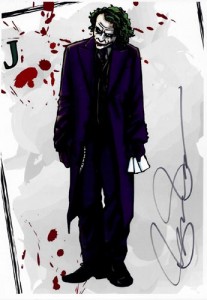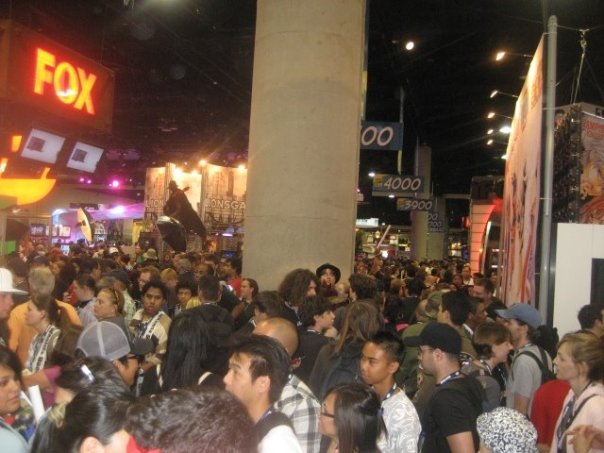On alternating Fridays, Leah Schnelbach waxes rhapsodic about comics, education, religion, and postmodernity. David Foster Wallace would be proud.
“Graphica in Education: Bringing Graphic Novels Out from Under the Desk,” a conference on the use of comics in education, was hosted by Fordham University on January 31st. It was a mixed bag, in a good way. It looks like the organizers were happy to let many different topics come to light, and didn’t worry too much about promoting any agenda other than the idea that comics work well with education. So, we got panels about the body in comics, the semiotics of gender, using comics as texts for varying grade levels (including a side note on their effectiveness in the education of autistic children) and a great presentation on the definition of graphic novel for a college-age audience.
The day was kicked off by the always-high-energy John Shableski, followed by morning keynoter James Bucky Carter, who told a very heartfelt account of the impact of comics on his poor childhood at the foot of the Appalachian Mountains. Not only did he literally learn to read from the X-Men and Spider-Man comics his mother bought for him, he also learned of a larger world beyond his town. The discrimination faced by the X-Men helped him see racism in his own community, and Nightcrawler’s spiritual struggles helped him work through his own discomfort with the Southern Baptist church he was raised in. He used these personal anecdotes as a platform to talk about his own work as a teacher, when he was assigned a class who had all failed an 8th grade-level reading comprehension test. His kids were all high-school-aged, but no one in the school really expected them to pass the test at the end of the year. So, drawing on his own past, Dr. Carter used comics to explore topics of diversity and cultural awareness, all while strengthening his students’ literacy and vocabulary. He used one particular issue of X-Men to guide the audience through the richness and depth that comics are capable of as a sort of teaching demo. Now, I’ve never been one to tear up at academic conferences (except perhaps out of despair), but, when he ended his speech by telling us that his kids scored nine points higher than the next-best class on that end-of-year literacy test… well, some like inspirational sports stories, some inspirational math stories, and some people like Michelle Pfeiffer, but anytime you show me Wolverine helping some poor kid dream of a better future, well, you’ve got me, bubbe.
Read more


